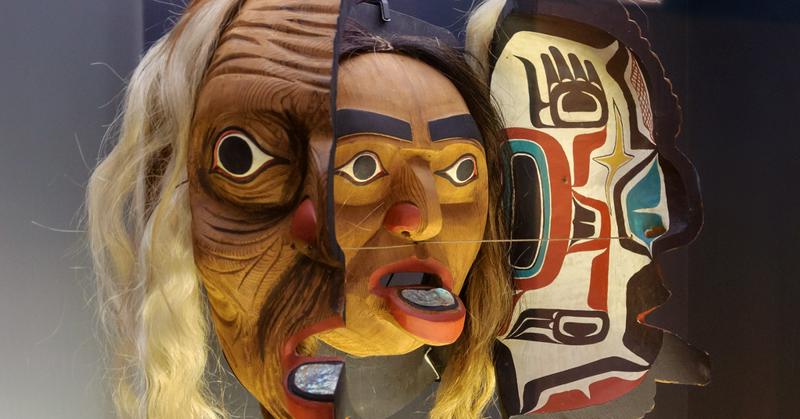Canadian Natives Were Imprisoned On Christmas Day For A Gift-Giving Festival
By | December 2, 2019

In the early 20th century, the Canadian government banned potlatch in an effort to destroy Native culture, depriving a generation of Tribal members of an important tradition. In British Columbia, the Pacific coast Indians had celebrated the potlatch, a gift-giving and community-building festival, since before the arrival of the Europeans. With the passage of the Indian Act in Canada, an act designed to assimilate the Native peoples, the potlatch was made illegal because it was seen as wasteful and was one of the most formidable obstacles standing in the way of converting Indians to Christianity. One strategy the Natives used was to hold potlatch ceremonies disguised as Christmas celebrations, but in 1921, a raid on a large Christmas-day potlatch resulted in numerous Kwakwaka’wakw Tribal members doing jail time.
Participating In Potlatch Was A Crime

The Indian Act passed in 1884, but was not effectively enforced for nearly 30 years. According to Section 3 of the act, anyone participating in a potlatch or the Indian dance, Tamanawas, was guilty of a misdemeanor and would be sentenced to two to six months in jail. Other potential reasons for outlawing the potlatch include the anti-capitalist implications within the redistribution of wealth that was an essential part of the celebration.
What Is A Potlatch?

The potlatch was a celebration which included elaborate gift giving, and in the Chinook language, the term means “to give.” Potlatches, central to Indian culture, were demonstrations of altruism celebrating a variety of events and helped to create alliances between tribes and redistribute wealth. At a potlatch, the chief would display mounds of blankets and other items to be handed out to those who attended. A chief may also have flaunted his own wealth during a potlatch, possibly by destroying a canoe or cutting up valuable copper currency.
The Arrests On Christmas Day

Despite the Indian Act, potlatches continued underground, either held in remote villages or celebrated under the guise of exchanging Christmas gifts.
Enforcement of the law began in 1913, and in 1921, missionaries informed the government that the Kwakwaka’wakw was engaged in debauchery at the events and got no work done. On Christmas Day, 1921, authorities raided Dan Cranmer’s potlatch, a very large event he was holding on a remote island east of Alert Bay to celebrate a wedding. The Indian Agent William Halliday and B.C. Provincial police officers arrested 45 people and charged the participants with dancing, giving speeches, and sharing gifts. However, they could avoid jail time if they surrendered their masks and regalia. Approximately 20 of them refused and spent some time in jail. In addition to the arrests, more than 600 ceremonial objects were confiscated. The masks ended up in museums and with private collectors.
What Happened To The Sacred Objects?

These sacred ceremonial objects were meant to be hidden from view in storage when not in use. But after they were confiscated, Halliday and his men brought them to the mainland in open boats and then displayed them as trophies. He sold 33 of the objects to a collector from New York, George Heye, claiming that the money would be used to help the Kwakwaka’wakw.
The Potlatch Becomes Legal Again

In 1951, after realizing that they were fighting a losing battle and recognizing the human rights violations that they had committed in Canada, Section 3 was deleted from the Act, a much less public action than repealing the section would have been. In the 1970s, the Indians began to work to get the objects back, but this proved to be difficult. They petitioned the government, but the burden of proof that the items had been illegally obtained was an obstacle. The government would only agree to repatriation if a museum were constructed to house and preserve the objects. Two museums, the U’mista Cultural Center in Alert Bay and the Nuyumbalees Museum in Cape Mudge, were built to house the artifacts. However, some of them were never returned, and U’mista has a particular significance in Kwak’wala, meaning “the return of something important.”
A Reason To Celebrate

In 1952, the first legal potlatch was hosted by Chief Mungo Martin as a celebration of the completion of the Big House in Thunderbird Park at the B.C. Provincial Museum.
